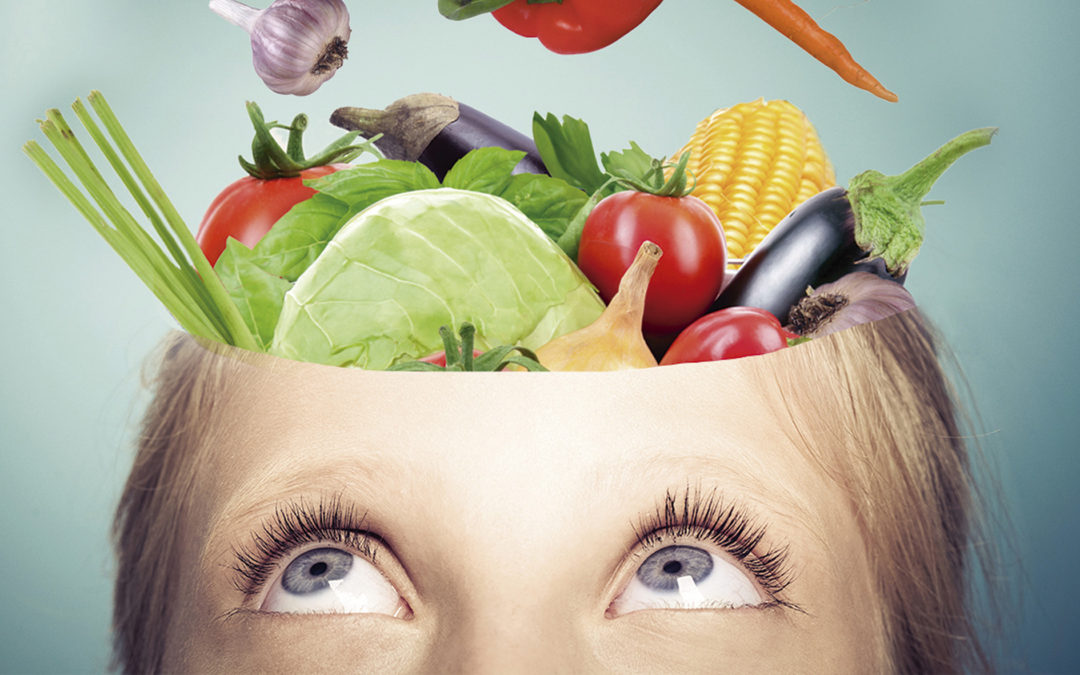


It’s not just about calories, it’s about what we eat. Moreover, if you eat more calories than your body needs (especially from the wrong source – sugar or carbohydrates), you gain weight, it will make you sick and become less efficient.
Did you know that your brain is 80% water? For this reason, in particular, it is possible to dehydrate it, for example through excessive consumption of caffeine or alcohol, which results in decreased intellectual abilities. Choose water every day and avoid juices and high-calorie coloured cola drinks. For the brain, water is the only viable option to nourish itself, which is why proper hydration is so important

Protein helps maintain normal blood glucose levels and is also a supplier of essential building blocks for brain health. Suitable sources of protein are, for example, fish, turkey, nuts, and green vegetables such as broccoli and spinach. The consumption of protein products increases our ability to concentrate.
Choose carbohydrates with a low glycemic index. The point is that the consumed carbohydrates do not contribute to the rapid increase in blood glucose levels.
Bad carbohydrates, which are simple sugars, should be treated as an enemy. Remember, the less sugar you eat, the better your life will be. Consuming products with a low glycemic index results in the absence of appetite attacks, helps lose unnecessary kilograms and contributes to lowering blood glucose levels. Excess blood glucose has a detrimental effect on blood vessels, waist circumference and brain function.
Healthy fats are your ally and they are essential to staying healthy. The dry mass of the brain, meaning the fraction that would remain of the brain after removing all the water, is made up of 70% fat! That is why it is so important to base your diet on healthy fats. For example, omega -3 and omega -6 fatty acids can be obtained from salmon, cod, avocado, walnuts and green leafy vegetables.
Pay attention to the source of the products. Eat organic food that has not been produced with pesticides. Buy meat from a reliable source, find out what the animals were fed. Eliminate artificial additives, preservatives and sweeteners from your food list, check labels carefully. Pay particular attention to: celery, blueberry, cucumber, headless cabbage, kale, green beans, tomato pepper, spinach, potato and fruit (peach, strawberry, apple, nectarine, grape, cherry) – these foods contain the most pesticides and consume only those that are organic. The lowest pesticide content can be found in: onions, avocados, asparagus, green peas, cabbage, broccoli, mushrooms, and eggplant.
Click here for a list of foods you can consume on a ketogenic diet.
They are generally: cereals containing gluten, soybeans, corn and dairy products. The neurotransmitter dopamine influences the processes that increase motivation, the accuracy of actions, emotional involvement, pleasure and concentration. It helps with completing tasks. So if you want to be focused – you should give up sugar, pasta, bread, potatoes and rice. You will increase dopamine by consuming beef, poultry, fish, nuts, eggs and cheese. Remember that simple carbohydrates lower dopamine levels.
Receive tips, articles and all the goodies absolutely free, straight to your inbox!